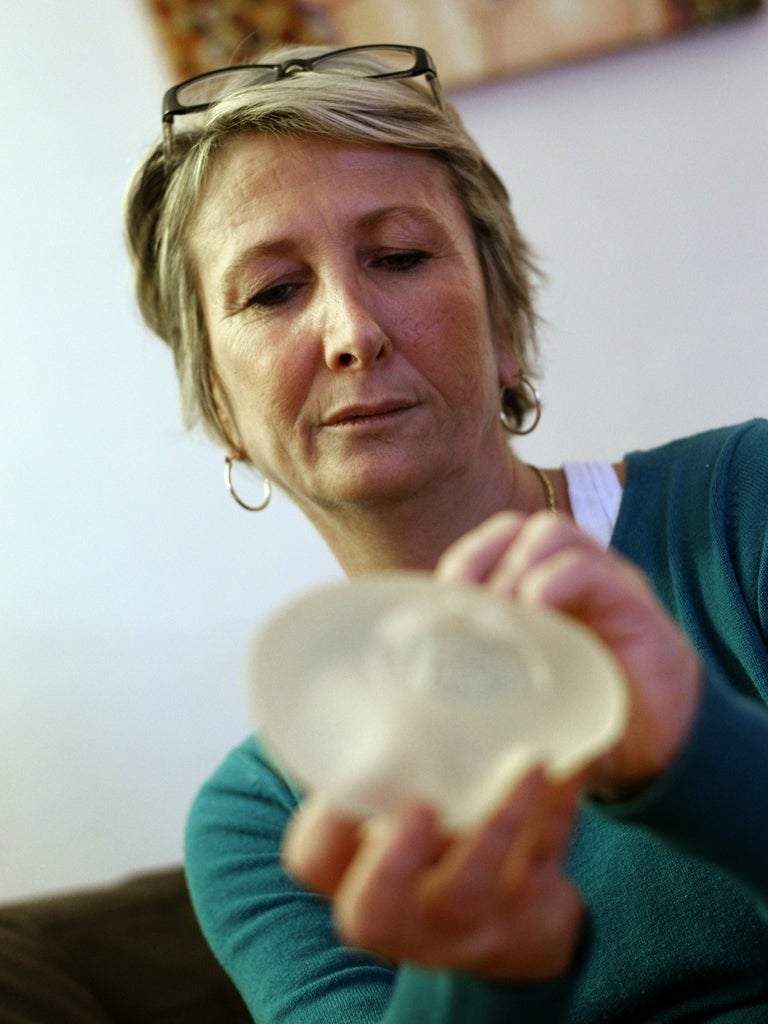Rift grows between Britain and France over breast implant scare

There was disagreement between British and French authorities over the advice to women with defective breast implants yesterday as the two governments declared themselves firmly on opposite sides of the debate.
And after Britain and France offered conflicting advice on the risks posed by the implants, Interpol announced it is seeking the arrest of Jean-Claude Mas, the founder of the company at the centre of the cancer scare.
Earlier in the day the French Health Minister, Xavier Bertrand, urged French women to have the implants made by Poly Implant Prothèse (PIP) removed, England's chief medical officer, Professor Dame Sally Davies, insisted that a simple check-up was sufficient and routine removal was not necessary.
The French government said it would pay for the removal but not the replacement of implants, which could cost women several thousand pounds. The only exception was for women who had undergone breast reconstruction for cancer. Mr Bertrand did allay anxiety about a cancer link: the health ministry said there was no evidence that women with PIP implants had a higher risk of cancer than those with other makes.
That, however, only made their advice to women to have the implants routinely removed more puzzling. Surgery involving general anaesthesia carries a risk. The risk from leaving the implants in place only comes if they rupture. Regular monitoring, with removal if they do so, ought to be sufficient to reassure most women. Mr Bertrand accepted that removal was a “preventive measure” and that it was “not urgent”.
In England, Professor Davies said: “Women with PIP implants should not be unduly worried. We have no evidence of a link to cancer or an increased risk of rupture. While we respect the French government's decision, no other country is taking similar steps.”
The British Association of Plastic, Reconstructive and Aesthetic Surgeons said it was “concerned” at the French authorities' recommendation, especially in light of their acknowledgement that there was no cancer link.
“The French decision will have heightened anxiety for some women with PIP implants. We reiterate that urgent action is not required as women are not at immediate risk but do recommend they consult a competent, responsible plastic surgeon with any concerns,” the association said. However, lawyers acting for more than 270 women in the UK planning to sue the clinics where they underwent surgery welcomed the recommendation by the French authorities and said they thought the women should have the implants removed.
About 300,000 implants were sold worldwide before PIP went bust last year, more than 84,000 of them in the UK. Assuming each woman has two implants that implies around 42,000 affected in the UK but the number could be higher. PIP used non-medical grade silicone believed to be made for mattresses which meant the low-cost devices were more likely to split.
Of the 30,000 fitted in France, more than 1,000 have ruptured, a rate over 3 per cent. However, figures from the MHRA suggest the rupture rate in the UK is lower at 1 per cent.
Subscribe to Independent Premium to bookmark this article
Want to bookmark your favourite articles and stories to read or reference later? Start your Independent Premium subscription today.

Join our commenting forum
Join thought-provoking conversations, follow other Independent readers and see their replies